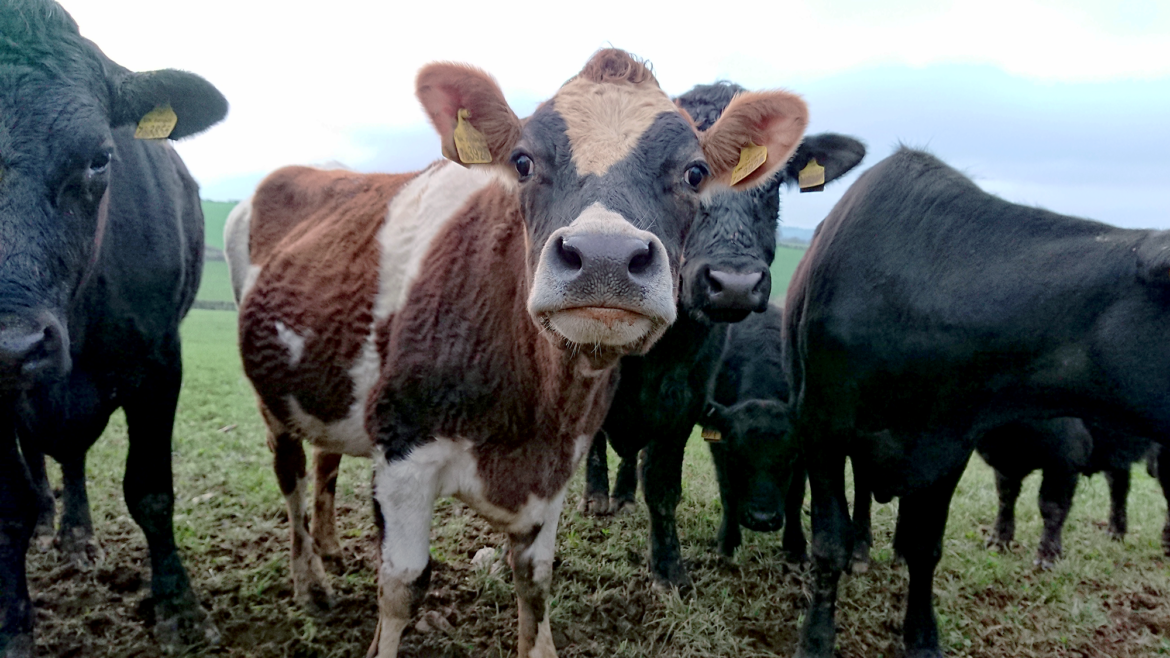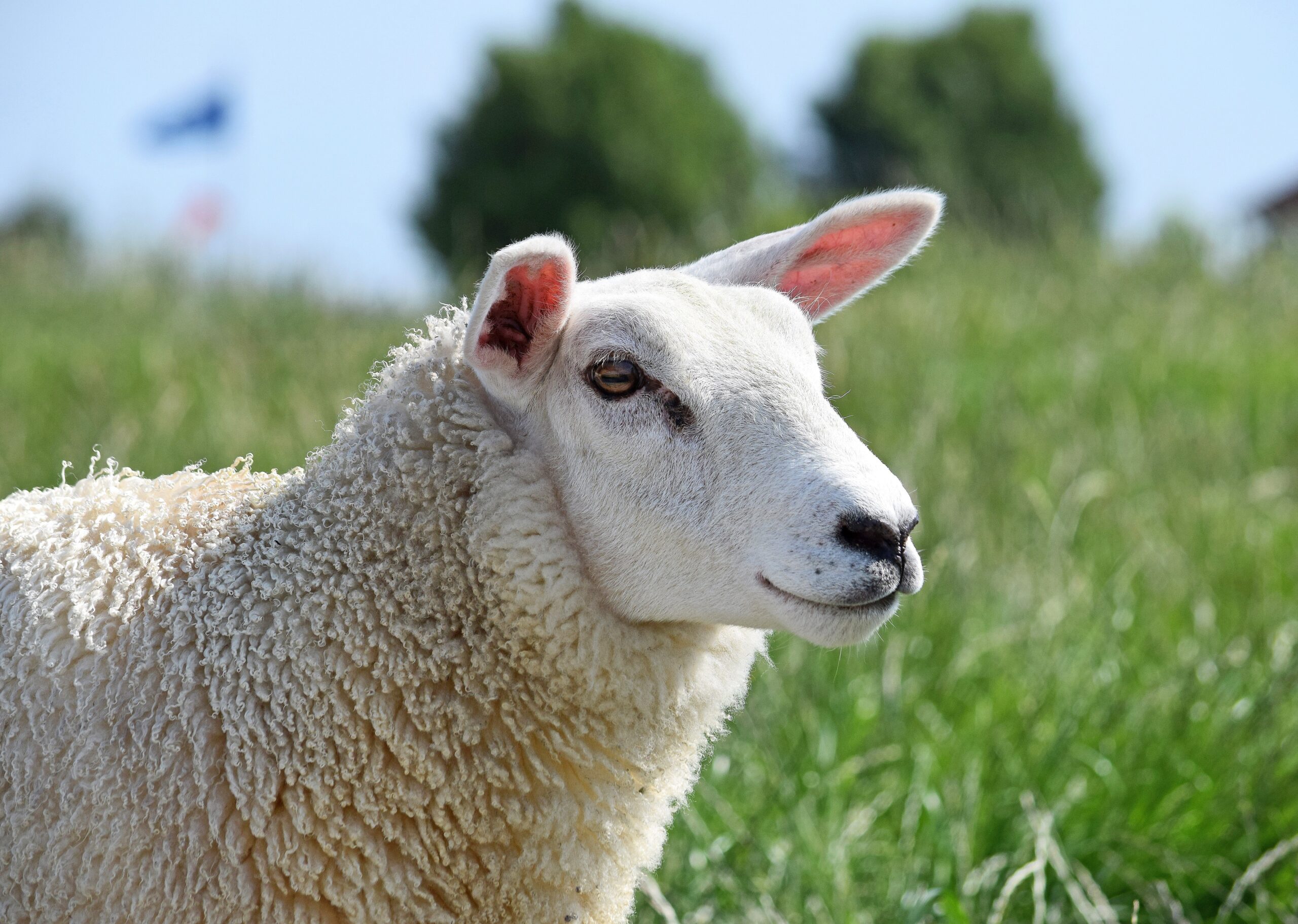Paul Shapiro, bestselling author and CEO of The Better Meat Co, explains the technology behind Clean Meat, addresses common concerns about its production and outlines its potential to drastically reduce greenhouse gas emissions and save the lives of billions of animals.
What is Clean Meat?
Clean meat, also known as cultivated meat, isn’t a meat alternative. It’s real, actual animal meat, simply grown from animal cells rather than animal slaughter. This is a promising technology that could divorce the meat experience from animal-raising, thereby sparing animals, slowing climate change, and improving food safety. Just in the same way we used to get ice from nature and now we use human-made technology to make ice for us (aka freezers), the clean meat pioneers are working toward a day when we can do the same with meat: use technology, rather than animals, to make it.
Why is there a need for Clean Meat?
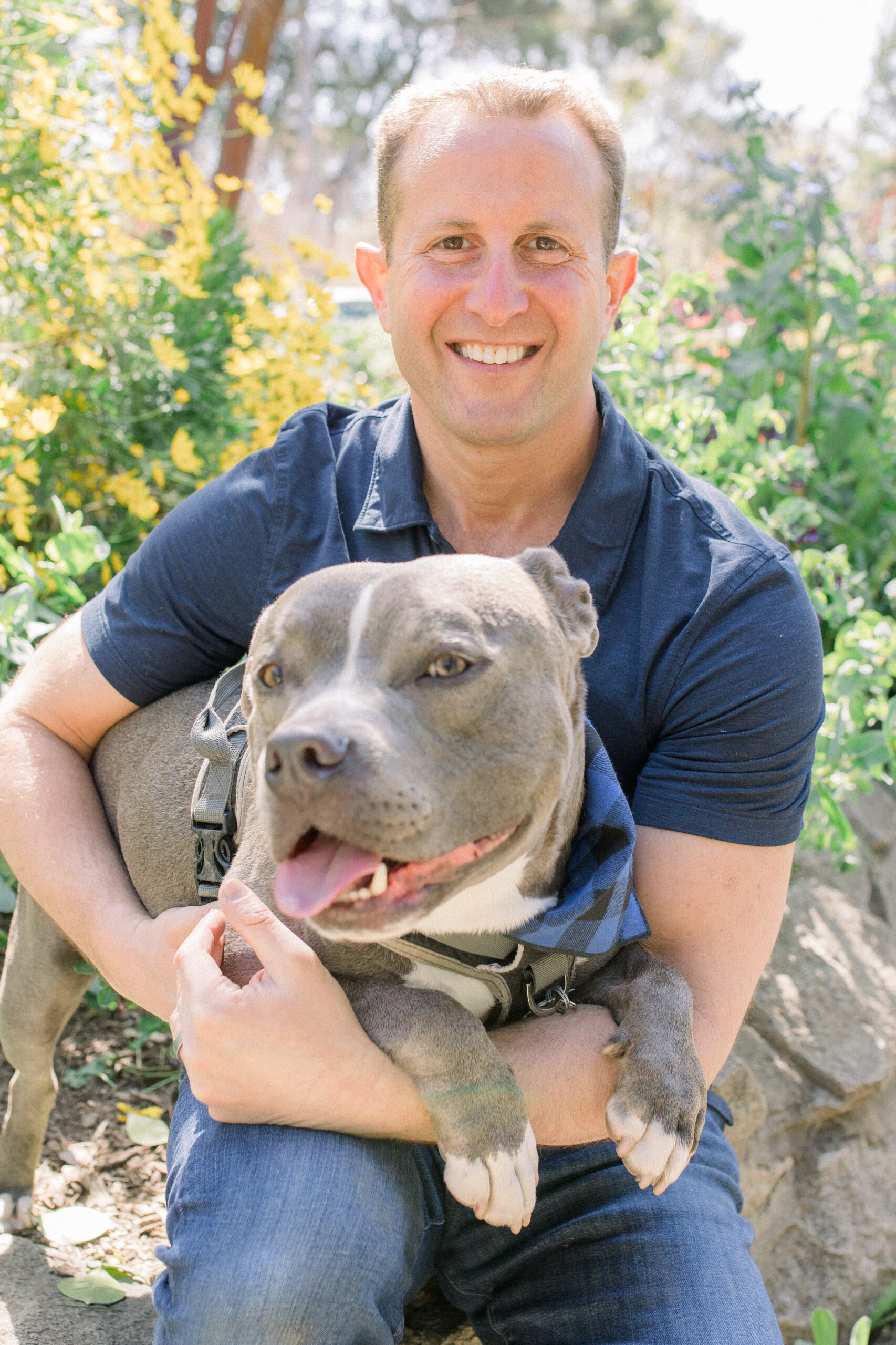
Paul Shapiro with his dog Eddie
The planet just isn’t getting any bigger. But humanity’s footprint on the planet is getting much bigger. And one of the primary ways we leave that footprint is through our food-print, principally in the amount of meat we eat.
It’s no longer a secret that raising and slaughtering billions of animals for food uses vast amounts of land, water, energy, greenhouse gases, and more, especially when compared to eating plants. Raising animals for food is the number one contributor to deforestation, wildlife extinction, and more.
Despite the fact that we all know it’d be better for the planet and for our health to eat fewer animals and enjoy a more plant-based diet, meat demand continues to go up. It’s not only that we’re adding more humans to the planet who are creating that increased demand; it’s also that per-person, we’re eating more meat than ever before in human history. When I became vegan in 1993, I remember reading that six billion land animals were slaughtered in the US annually. Fast forward today and the number is closer to 10 billion. And the trends are similarly troubling around the world.
It’d be fantastic if we wanted to enjoy more lentil soup, rice and bean burritos, and hummus wraps. Those are great foods that many of us love. But it’d also be nice if we wanted to walk and bike more, yet people seem to really like driving, which is why we need to make cars that don’t rely on fossil fuels. Similarly, people really do seem to want meat, which is why we need to recreate the meat experience—without animals.
Are animals harmed in the production of Clean Meat?
A one-time, sesame-seed biopsy can be taken from an anesthetized animal that will produce millions of pounds of meat. As far as trade-offs go, it seems like a pretty good one. That’s especially true when you consider that the production of many plant-based foods involves far more harm to animals than that. (For example, animal blood and fishmeal are common fertilizers used to grow organic produce.)
In regard to human health, how does Clean Meat compare with farmed meat?
Clean meat can be grown to have identical nutritional profiles to slaughter-based meat, or it could be grown to be superior. But on food safety, it’s a very different story. The term clean meat was popularized by the non-profit Good Food Institute, and with good reason. Like clean energy, clean meat is cleaner for the planet, but also, the meat itself is just cleaner. Think about it: We’re warned to treat raw meat in our kitchens almost like toxic waste—why? Because there’s faecal contamination on it. E Coli, Salmonella, Campylobacter—these are all intestinal pathogens that can sicken us if we don’t cook the crap out of our meat–literally… But when growing clean meat, you’re just growing muscle and don’t need intestines at all. This absence of pathogenic bacteria means that clean meat doesn’t spoil nearly as fast as conventional meat, which is one reason why many food safety experts are so enthusiastic about it.
But isn’t Clean Meat unnatural?
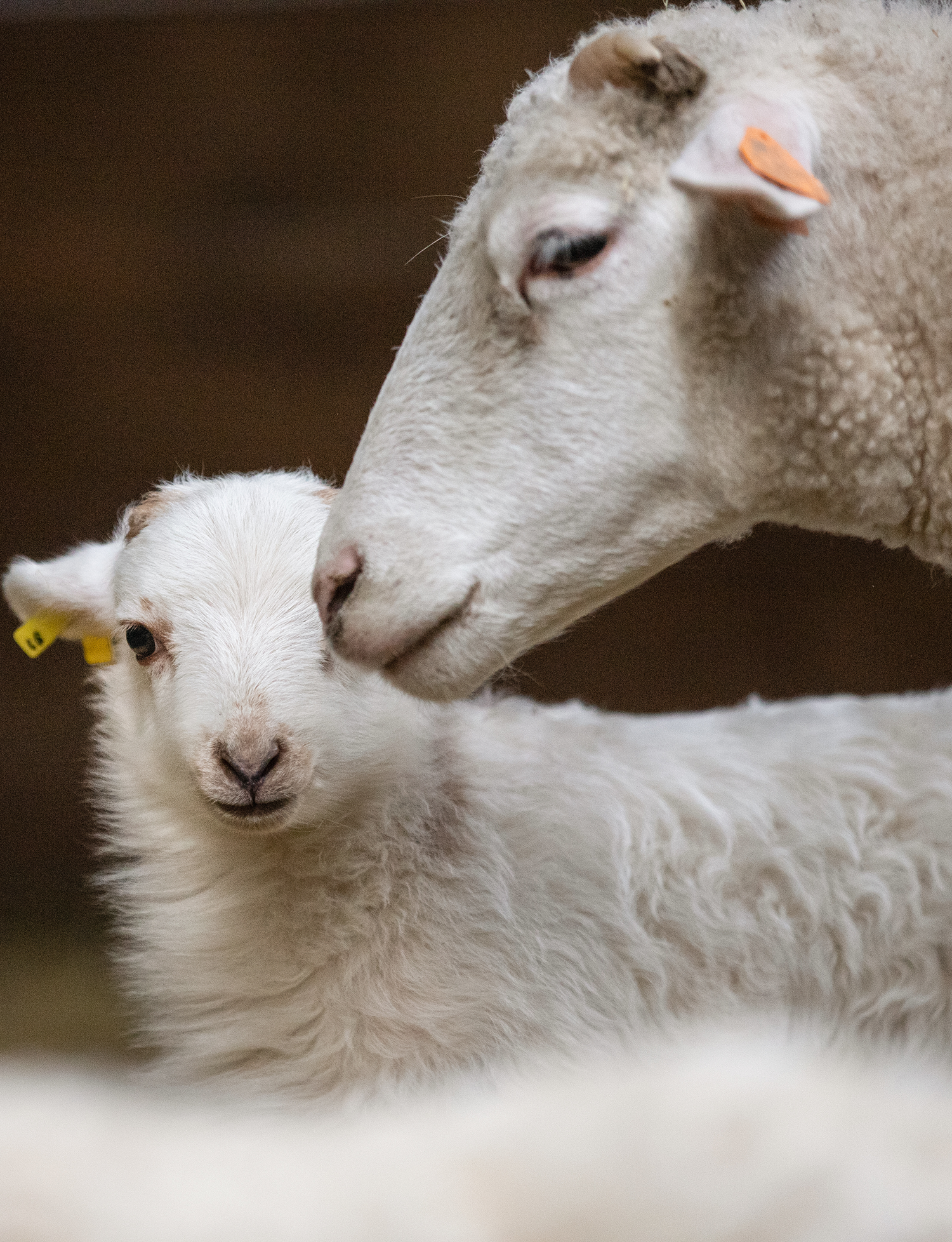
© Jo-Anne McArthur
Growing meat from animal cells is as “unnatural” as using email, flying, anaesthesia, air conditioning, and so many other things we do in our normal lives. Ever since humans moved away from a nomadic hunter-gatherer lifestyle, we’ve been engaged in a variety of “unnatural” methods of growing our foods, which is why the foods we eat today look nothing like their wild progenitors from whom we domesticated them. Similar to how we’ve domesticated animals and plants to feed us, clean meat is a form of cellular agriculture that allows us to essentially domesticate cells and produce meat much more humanely and sustainably than we do now.
As well, let’s just consider for a moment how natural most meat is today. Just as one example, think about chickens. Nearly all of them in America languish inside overcrowded factory farms, living in their own faeces, never feeling the sun on their back or stepping foot on a blade of grass. They’re often pumped full of drugs like antibiotics and have been genetically selected to grow so big, so fast, that many have difficulty walking more than a few steps. And when they’re taken to slaughter, well, let’s just say you’d rather not know. The point is that when we start to consider just how blatantly unnatural most current meat production is, clean meat all of sudden seems like the more natural, or at least clearly preferable option.
When will Clean Meat burgers be available in our supermarkets?
I’m sorry to say it, but cultivated meat is still years away from being on fast food menus and big box grocery shelves. In the meantime, there’s another option available to us today, too: There are already many wonderful plant-based alternatives to meat that look and taste like “the real thing.” I love those products, eat them myself, and hope and expect that the market for them will continue growing. I’m also very passionate about fungi-based meats, as I discuss in this TEDx talk. Just as we’ll need a variety of clean energy solutions–wind, solar, geothermal, nuclear, etc.–we’ll need a variety of clean protein solutions to create a more modern meat industry.
When a Clean Meat burger can be produced cheaper than a farmed meat burger, will this herald the end of animal farming?
I doubt it. We still have some people using horse-drawn carriages more than a century after the car was invented. But I do think that when slaughter-free meats are more affordable than slaughter-based meats, presuming they taste as good if not better, it will spare billions of animals.
How might people of faith regard Clean Meat?
It depends on which faith, but many religious authorities have expressed that they think meat grown from animal cells could be considered allowable in their faith so long as certain conditions are met. For example, Israel’s chief rabbi declared in 2023 that cultivated meat can be kosher. Israel itself is a leader in the race to commercialize cultivated meat, actually. And one of those Israeli start-ups, Aleph Farms, is seeking to be the first such company to be halal certified.
How can people learn more about Clean Meat and your work?
Thanks! More on my book, Clean Meat, is here. You can also see my talks, writings, the podcast I host, and more here.
Paul Shapiro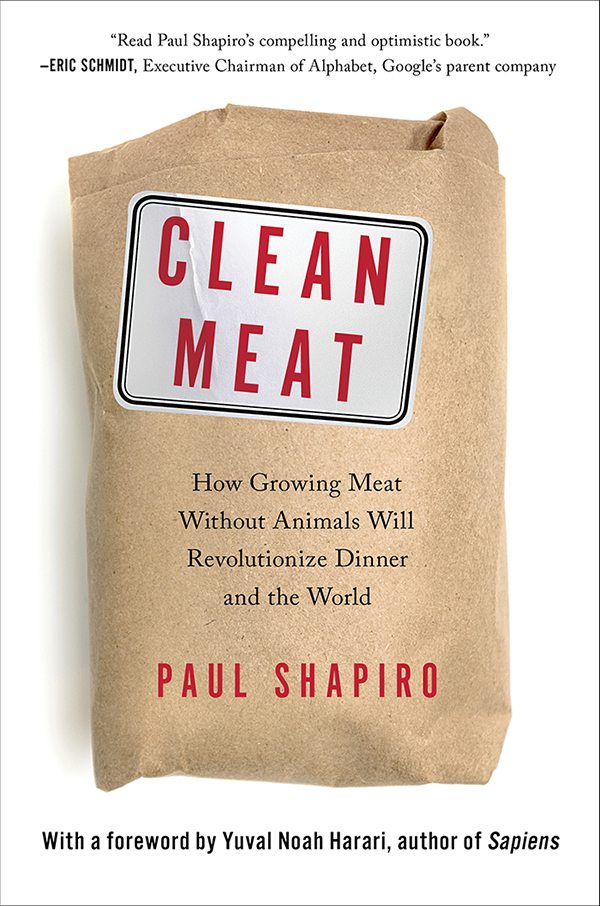 is the CEO of The Better Meat Co., the author of the national bestseller Clean Meat: How Growing Meat Without Animals Will Revolutionize Dinner and the World, a five-time TEDx speaker, and the host of the Business for Good Podcast.
is the CEO of The Better Meat Co., the author of the national bestseller Clean Meat: How Growing Meat Without Animals Will Revolutionize Dinner and the World, a five-time TEDx speaker, and the host of the Business for Good Podcast.
In 2023, he was named Most Admired CEO by the Sacramento Business Journal.


